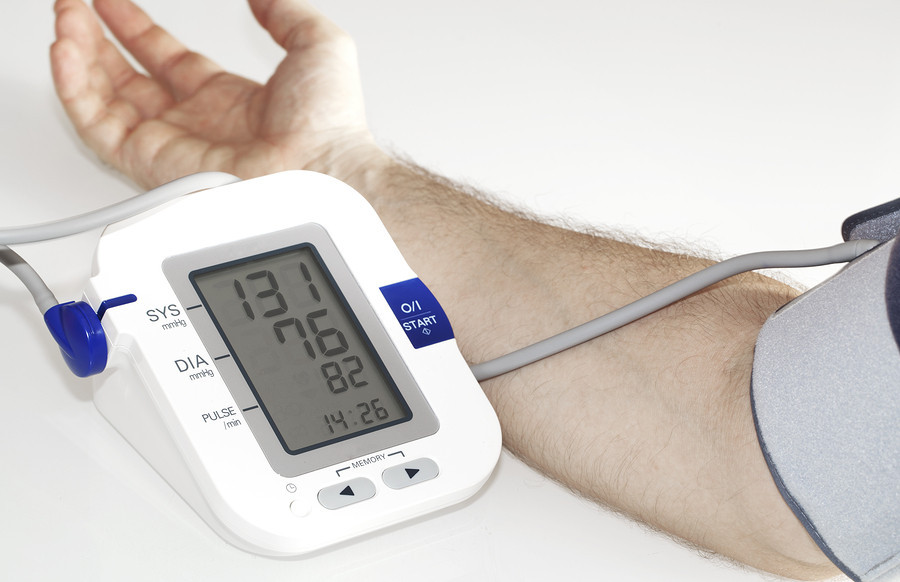
Tips to leverage neuroplasticity to maintain cognitive fitness as you age

Can white noise really help you sleep better?

Celiac disease: Exploring four myths

What is prostatitis and how is it treated?

What is Cushing syndrome?

Exercises to relieve joint pain

Think your child has ADHD? What your pediatrician can do

Foam roller: Could you benefit from this massage tool?

Stepping up activity if winter slowed you down

Common causes of cloudy urine
Heart Health Archive
Articles
What does it mean to have a heart attack?
Heart attack symptoms can be severe or subtle. The underlying process that causes a heart attack can differ, and people may experience significant heart damage or little to none. Doctors diagnose a heart attack based on symptoms, a person's cardiovascular risk profile, electrocardiogram findings and the blood troponin level. Troponin is a protein released when heart damage occurs. Immediate and long-term treatment depend upon the type of heart attack and its impact on heart function.
Cutting meat intake by a third could reduce rates of heart disease
A 2024 report suggests that rates of cardiovascular disease, diabetes, and colon cancer would fall substantially if people ate less red and processed meat.
More evidence links flu infection to heart attack risk
A diagnosis of influenza (flu) was linked to a sixfold risk of heart attack over the following week, according to a 2024 report.
Travel tips for people with heart related risks
Air travel tips for people who have or are at risk for heart disease include bringing extra prescription medications in a carry-on bag and drinking water—but not alcohol—during the flight. When taking medications (especially blood pressure and anti-clotting drugs), people should try to schedule their doses based on their home time zone. On a long flight, walking a little every hour or so will help improve circulation in the legs; so can flexing the feet and circling the ankles. Doing so may reduce the chance of developing a blood clot, although the overall risk of such clots (known as deep-vein thrombosis) is quite low.
What is a leadless pacemaker?
Leadless pacemakers, which are no bigger than a multivitamin pill, are far less prone to complications that traditional pacemakers, which have long leads (wires). These wires may become infected, dislodged, frayed, or broken. Scar tissue or blood clots can form around the leads, which may hinder blood flow and cause pain and swelling. Thanks to recent advances, most people who need pacemakers may now be candidates for leadless devices. However, doctors have less experience with what happens with leadless pacemakers over the long term—and they cost two to three times as much as a traditional pacemaker.
Carbs: Cutting through the confusion
Carbohydrates include fiber, starches, and sugars. The healthiest sources include whole grains, legumes, vegetables, and fruits, which are rich in fiber as well as vitamins and minerals. Starches, the most commonly consumed form of carbohydrate, make up a large part of cereal grains such as rice, wheat, and corn; root vegetables such as potatoes and sweet potatoes; and vegetables like peas and winter squashes. Low-quality carbohydrate choices include sodas, candy, and sugary desserts.
Different types of rapid heart rhythms
Atrial fibrillation and supraventricular tachycardia are rapid, abnormal heart rhythms that originate in the upper part of the heart. But they tend to arise at different ages, and they require different treatments.
Time for a medication check-up?
About one in five medications taken by older people is inappropriate. Many of these are heart drugs that are potentially harmful, have no clear benefit, or aren't as good as other options. These should be stopped or switched. One common example is low-dose aspirin, which is advised only for people who've had or are at high risk for a heart attack. Other drugs that may need to be stopped or replaced include beta blockers, warfarin, and older diabetes drugs.

Tips to leverage neuroplasticity to maintain cognitive fitness as you age

Can white noise really help you sleep better?

Celiac disease: Exploring four myths

What is prostatitis and how is it treated?

What is Cushing syndrome?

Exercises to relieve joint pain

Think your child has ADHD? What your pediatrician can do

Foam roller: Could you benefit from this massage tool?

Stepping up activity if winter slowed you down

Common causes of cloudy urine
Free Healthbeat Signup
Get the latest in health news delivered to your inbox!
Sign Up











